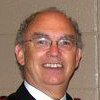 April is a significant month in The Salvation Army. It was in April that William Booth, the Founder of the Army, was born (April 10, 1829). It is in April that General Linda Bond takes leadership of this worldwide organization.
April is a significant month in The Salvation Army. It was in April that William Booth, the Founder of the Army, was born (April 10, 1829). It is in April that General Linda Bond takes leadership of this worldwide organization.
It is not hard to think of General Booth and General Bond in the same sentence. General Booth was a dreamer. By that I mean he was a visionary. He believed that God had given him a destiny to serve the poor and to make the marginalized of society aware of the gospel.
We Salvationists know the story well of how young Booth left home one night and trudged through that dismal part of Victorian London, England, known as Mile End Waste. Passing through the filthy streets lined with “shows, shooting-ranges, petty dealers and quack-doctors,” he came to the Blind Beggar pub where some street evangelists were holding a meeting. Recognizing the young preacher, they invited him to speak. Booth addressed the crowd of “lurching bravoes from the ditches, drabs from the alleyways and pale drug fiends with minds still passion-ridden and soul-powers frail.” He looked upon the “unwashed legions with the ways of death” and he fell in love with them. He preached to them the gospel in all its power and beauty because he saw them not as they were but dreamed of what they could become. At midnight he returned home to his wife with the news, “Kate, I have found my destiny.”
I think that in a similar way General Bond has also found her destiny. In an interview following her election she said that “the marginalized, the poor and the addicted were part of the community landscape” where she grew up (see interview). Early in her life she recognized that her parents were committed to seeing things change for those who were hurting, and she caught that caring spirit. Upon being nominated for the Army's highest position she said, “My overall feeling was that 'this is of the Lord.' ”
There are two big differences between Booth and Bond. One is their ages and the other is the age in which they serve. Booth was in his 30s, a young man with decades of leadership ahead of him. He shaped the Army and steered its rapid growth around the world. Bond is already a senior citizen. She can give us only a few years of service and will then be replaced by another senior. The fact that she was not elected 10 years ago is our loss. I wonder why the best of our gifted leaders are made to wait until their senior years to take on the most demanding task in the entire Salvation Army world.
The other difference between the Founder and our present General is the age in which each was called to serve. General Booth served in the Victorian Age. This was a time when English culture, language and military dominated the globe. In that age it was said that the sun never set on the British Empire. Wherever the British dominated, The Salvation Army had an open door to evangelism. For the Army it was “natural church development” to grow with the empire.
This is a different age. General Bond's task, in some ways, is much more challenging. Expansion cannot happen on the coattails of another political or social movement. She can build upon that foundation which is already laid, but for expansion she must use creative methods other than the kind used by Booth.
Listening to General Bond is like listening to some of the old stalwarts like Generals Wiseman, Coutts and Orsborn. She speaks the language of the pioneer Army―of calling, holiness, soldiership, officership, evangelism and commitment to Jesus. She talks about revival and prayer and she really believes that the best days of the Army are yet to come.
But one General does not an army make. No leader can accomplish anything by herself. She needs likeminded officers, soldiers and adherents. She needs Salvationists who cherish the core values of the organization and who are as committed to the cause as were William and Catherine Booth and George Scott Railton.
Alas, in this territory there is a great dichotomy between this dream and the current reality. Officer ranks are thinning. Many of our members do not see soldiership as being necessary. Our work with children and youth is proving ineffective. Evangelism takes second place to humanitarianism.
But in spite of that, the General's words bring hope. She said, “I have a sense deep in my spirit that God is wanting to do something in the Army, through the Army, that I can't quite articulate.” Let us pray that her dream will become for her a clear vision that she will articulate plainly in the days ahead and that the Army will again rise up and “win the world for Jesus.”
Dream on, General, dream on. We need leaders who believe in greater things.
 Major Fred Ash is the corps officer at Burlington Community Church, Ont.
Major Fred Ash is the corps officer at Burlington Community Church, Ont.









1.
I've found the secret of success,
'Tis holding on, 'tis holding on;
The way to every blessedness,
'Tis holding on, 'tis holding on.
Our warfare may be hard and fierce,
Oft Satan's arrows wound and pierce,
But still we get more smiles than tears
By holding on, by holding on.
2.
Have you your fighting just begun?
Keep holding on, keep holding on;
The hardest battles have been won
By holding on, by holding on.
Though you may meet with runaways
Who mourn their weakness half their days,
Yet you can gain eternal praise
By holding on, by holding on.
3.
If full salvation you would gain,
Keep holding on, keep holding on;
To conquer sins that bring you pain,
Keep holding on, keeping holding on.
God loves to give the better part,
Not unto those who only start,
But those who seek with all their heart,
And then in faith keep holding on.
Ruth Tracy (1870-1960)